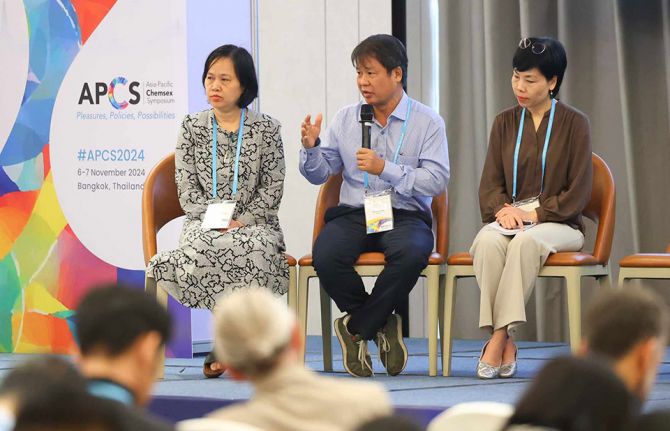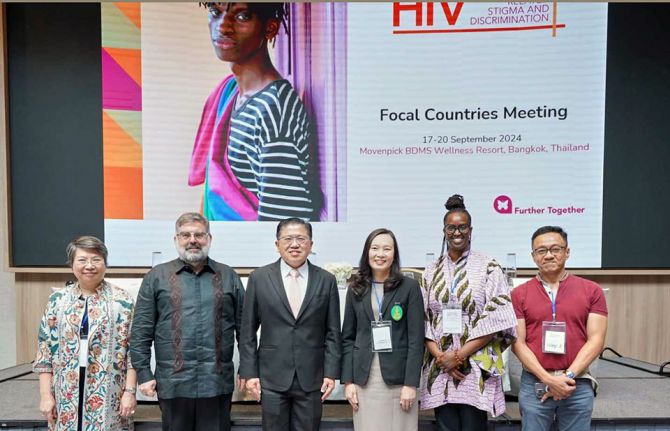
Feature Story
Mobility, migration and vulnerability to HIV along the ports of the Red Sea and the Gulf of Aden
28 September 2010
28 September 2010 28 September 2010
H.E. Ismail Omar Guelleh, President of the Republic of Djibouti together with Mr Michel Sidibé, UNAIDS Executive Director. Credit: UNAIDS/P.Virot
Each year, there are more than 200 million people on the move. The UN estimates that between 20 and 30 million are migrants in irregular situations and that wars and conflicts have caused the displacement of 16 million refugees.
Many countries around the Red Sea and Gulf of Aden are affected by intense poverty and violent internal conflicts. This has resulted in large numbers of migrants living in and around the ports. There is also a large community of mobile populations, including truck drivers, dock workers, port staff, security staff, ships crews and sex workers who can be at higher risk of exposure to HIV.
Poverty, social exclusion; separation from families and communities, loneliness, fear and marginalization can make mobile populations and migrants particularly vulnerable to HIV. The situation can also be aggravated by lack of access to HIV prevention, treatment and care services.
“It is essential that mobile and migrant populations living in and transiting through ports have access to HIV services and are included in national HIV plans,” said Michel Sidibé, Executive Director, of the Joint United Nations Programme on HIV/AIDS (UNAIDS). “Achieving universal access goals means making sure all sectors of society are reached, particularly people most vulnerable to infection.”
The Government of Djibouti, in close collaboration with UNAIDS, the International Organization of Migration, the Inter-Governmental Authority on Development (IGAD), and other partners, convened a meeting from 26-29 September 2010, which brought together leaders from Red Sea countries and other countries across Africa to address the issue of key populations at higher risk of HIV infection along the Red Sea and the Gulf of Aden ports.
“For us, this conference has been extremely instructive, we have learnt a lot from the experts, but particularly from people living with HIV who have come forward to tell us their stories,” said His Excellency Abdallah Abdillihi Miguel, Minister of Health of Djibouti. “This meeting has reinforced my conviction that we have to continue to work towards universal access to HIV prevention, treatment, care and support and make sure that everyone in need, even those most marginalised and vulnerable, has access to services.”
The experts and leaders agreed to take concrete actions to strengthen advocacy and leadership on HIV and mobility; integrate HIV and mobility into national strategic plans; ensure improved planning; enhance the capacity of civil society and partnerships with the private sector; and develop a common communication strategy with particular emphasis on human rights.



